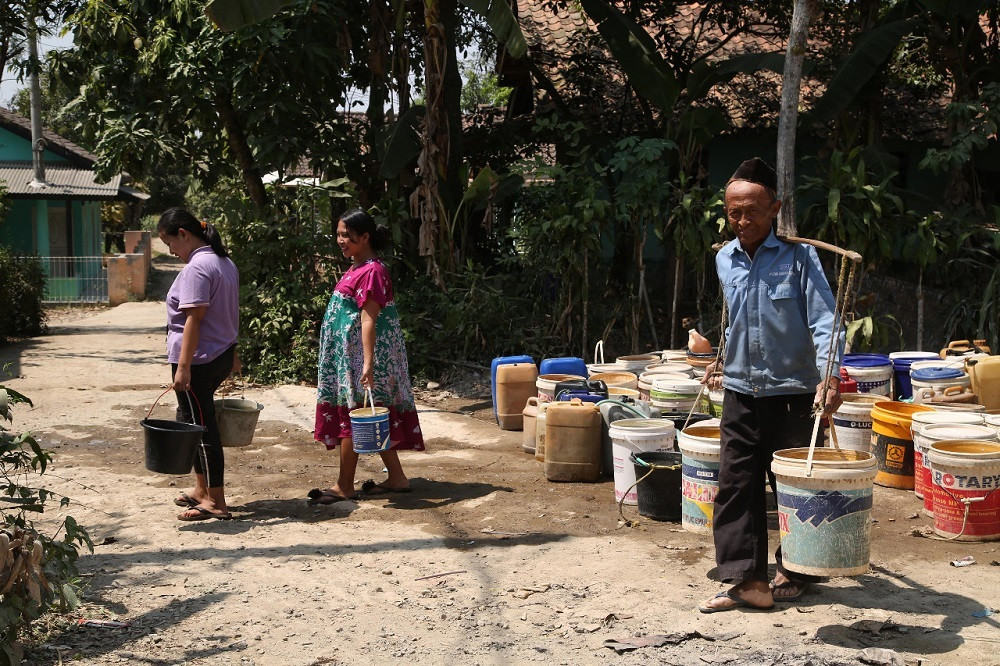Popular Reads
Top Results
Can't find what you're looking for?
View all search resultsPopular Reads
Top Results
Can't find what you're looking for?
View all search resultsGreen recovery key to reviving virus-hit economies
Pursuing a green economy makes both environmental and economic sense. For every dollar spent advancing the global energy transition, we get $3-$8 in return, according to the International Renewable Energy Agency. Studies have also shown that clean energy infrastructure construction generates twice as many jobs per $1 million spent as fossil fuel projects.
Change text size
Gift Premium Articles
to Anyone
A
chieving our climate ambitions is more imperative now than ever. The coronavirus outbreak has had devastating impacts on our lives and livelihoods, and amidst its horrors and tragedies, the pandemic yet again reminds us the impact humanity has on the environment.
As much as we are focused on confronting the economic and health emergencies, we must not lose sight of the historic opportunity to rethink the foundations of our economic systems in a way where we can rebuild a world capable of turning climate change on its head. Pandemics have a history of catalyzing change. We are already seeing that emerging in our approach to healthcare, productivity, and governance – why not for sustainability?
In Asia, Indonesia is setting a great example with its efforts to create a low-carbon future. The Indonesian government has committed to reducing its greenhouse gas emissions by 29-41 percent by 2030. It aims to decarbonize its economy “in a phased approach” – namely, through policies for “improved land use and spatial planning, energy conservation and the promotion of clean and renewable energy sources, and improved waste management”.
Now is the time to create the conditions for a society-wide transition to a low-carbon sustainable future. Countries such as Denmark are on the forefront of such a transition, with the government focused on achieving its ambitious climate goals, working with key industry players to drive climate initiatives that are also capable of contributing considerably to the country’s economic recovery.
We believe that the world will greatly benefit from the collaboration between the private and public sectors. Governments have the access and power to effect change, while corporations are driven by a commitment to be part of the solution and also have first-hand knowledge of what is needed from governments to unlock private-sector investments.
Currently, governments around the world are urgently pulling together vast national budgets to sustain economies that are on the verge of collapsing. Ahead of spending these millions of dollars, the choices government make now will determine whether the pandemic serves to delay or accelerate a low-carbon transition.
There is an opportunity to shape this transition in ways that ensures a long-term sustainable recovery. In fact, the scale of what is needed to tackle climate action can be manageable. According to the World Health Organization, in order to meet the Paris climate agreement’s emissions-reduction targets, governments would need to contribute an estimated 1 percent of global gross domestic product per year.
The Indonesian government has demonstrated this by recently announcing a Rp 15 trillion (US$1 billion) solar power project to drive a green economic recovery. Known as the Solar Archipelago (Surya Nusantara) plan, the renewables project will create 22,000 jobs from installing the solar panels and save public spending on electricity subsidies.
Pursuing a green economy makes both environmental and economic sense. For every dollar spent advancing the global energy transition, we get $3-$8 in return, according to the International Renewable Energy Agency. Studies have also shown that clean energy infrastructure construction generates twice as many jobs per $1 million spent as fossil fuel projects.
To leverage the vast opportunities this presents, governments need to work closely with the private sector to accelerate the green transition. While governments can set the direction with policies, industry players hold the expertise to introduce innovative green solutions.
Based on insights gathered from successful climate partnerships, three key areas have emerged that can benefit from collaboration between governments and industry leaders to advance decarbonization. The first step to successful climate action is setting ambitious national emissions-reduction targets for each economic sector. This is crucial for all stakeholders to align on and work towards a common goal, monitor their progress and inform strategies.
Additionally, countries need to reevaluate current business conditions, and establish conditions that would be conducive for improved energy efficiency amongst industries, through renewable energy production and green electrification.
Lastly, governments need to encourage investment toward innovative green technologies, specifically towards stimulating greater research and development. Digitalization and innovation are crucial steps and is something we champion passionately to shape and support our digital transformation journey as well. Water management is a key example where digitalization and innovation can bring about great change in an industry that traditionally commands considerable energy demands.
There is no one-size-fits-all approach when it comes to finding the right measures and initiatives that would work for all players involved. Policymakers and industry leaders need to work together in sharing best practices and insights that would help shape their economic recovery and accelerate the green transition.
What the pandemic has shown us is that there is no longer a “business as usual” we can return to. Based on the recommendations outlined, we can do more than just recover; we can emerge stronger, both environmentally and economically.
***
Group senior vice president and regional managing director at Grundfos Asia Pacific Region










